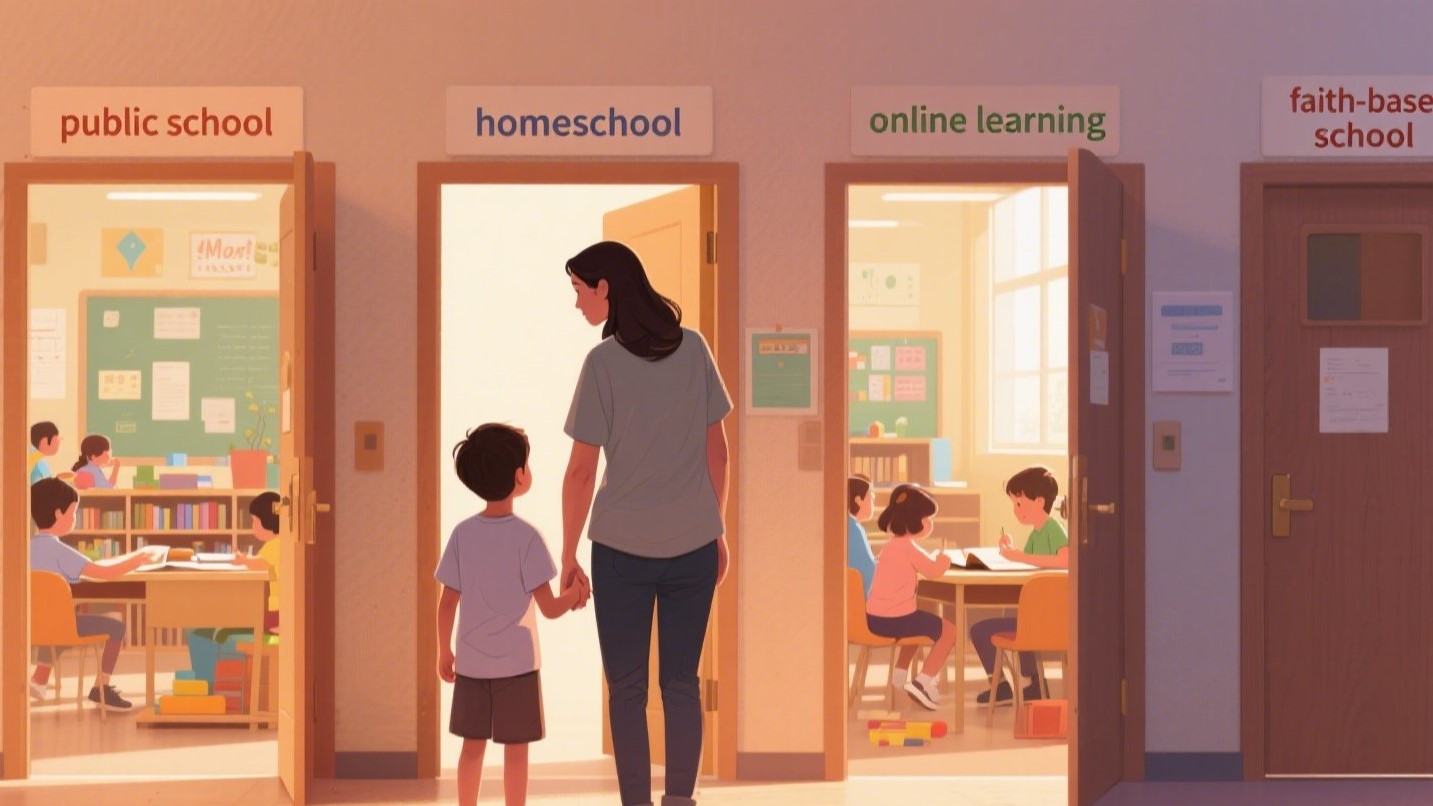Every child’s learning path is unique—here’s how to navigate yours with confidence.
The path you choose for your child’s education shapes not only their academic journey but also their personal development, worldview, and future opportunities. While not all parents have access to a full range of schooling options due to time, resources, or location, every parent plays a powerful role in shaping their child’s learning experience.
Whether you’re selecting between public, private, homeschool, or alternative models, or working within a more limited set of choices, asking the right questions helps clarify your values and your child’s needs.
👪 Education Isn’t One-Size-Fits-All
In many families, different children may thrive in different learning environments—and that’s okay. In our household, some children attend traditional schools, while others thrive in cooperative homeschool settings. As parents, we constantly evaluate what works best for each child, even when self-doubt creeps in.
Here are four guiding questions to help you reflect and decide:
1️⃣ Do You Trust the People Educating Your Child?
Children spend hundreds of hours each month at school. Educators and caregivers greatly influence their development, values, and self-image.
- Get to know teachers and administrators
- Ask about their values, classroom approach, and communication style
- Don’t hesitate to advocate for a safe, nurturing, and respectful environment
Even if you can’t choose the school, your engagement makes a difference.
2️⃣ Which Educational Model Matches Your Family’s Lifestyle?
Education doesn’t have to fit a traditional mold. Whether it’s Montessori, Waldorf, unschooling, or structured public schooling, consider:
- Your child’s natural interests and curiosity
- Your family’s work-life rhythm and values
- How learning can happen outside the classroom—through books, games, field trips, and conversations
Even if homeschooling isn’t an option, you can still make learning joyful at home.
3️⃣ How Is Faith or Value-Based Learning Integrated?
While not all families prioritize religious education, many seek environments where faith or moral values align with their own.
- Does the school environment support or contradict your family’s core beliefs?
- How can you reinforce those values at home through discussions and shared learning moments?
Education should be both intellectual and heart-centered—building character as well as knowledge.
4️⃣ Is the Environment Right for Your Child’s Learning Style?
Children learn in different ways. The ideal school should meet your child where they are:
- Are they introverted or social?
- Do they thrive on structure or flexibility?
- Do they need support for learning differences or emotional growth?
Look beyond academics—emotional safety and joy in learning are equally important.
🧠 Final Thoughts: It’s About Growth, Not Perfection
There’s no perfect formula for choosing your child’s education. But with reflection, communication, and support, you can create a path that nurtures resilience, character, and curiosity.
Parents are not just decision-makers—they’re co-educators and lifelong guides. Whether your child learns at a desk, around the kitchen table, or in a forest classroom, what matters most is that they feel seen, supported, and inspired.





